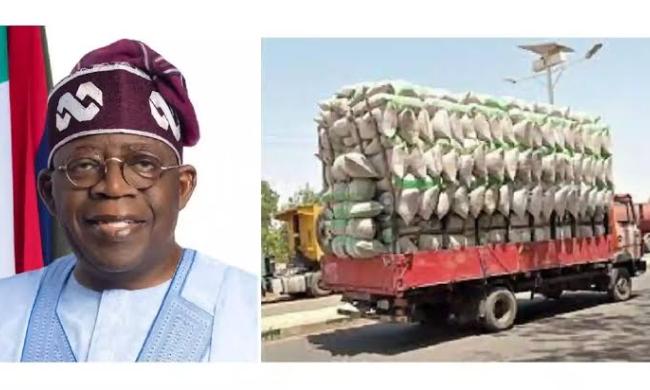
The administration of President Bola Tinubu reportedly spent N9.74 billion in 2024 on the procurement and distribution of food items aimed at addressing the ongoing food crisis in Nigeria.
This information was disclosed by BudgIT, a civic-tech organization advocating for transparency and accountability, through its platform, GovSpend.
According to the report, a significant portion of the funds was allocated to the purchase and distribution of essential staples such as rice, beans, maize, and other food items. The initiative was spearheaded by the Federal Ministry of Agriculture and Food Security, which made several payments to contractors tasked with delivering emergency food supplies to federal constituencies.
The report highlighted key transactions, including the delivery of rice, beans, and garri to vulnerable communities. Payments, averaging N85.45 million per constituency, were made between February and November 2024 across various regions.
Data from the platform revealed that N85,454,545.46 was spent per constituency in states such as Kano, Ogun, Osun, Akwa Ibom, Cross River, Adamawa, Kaduna, Jigawa, Ekiti, Oyo, Lagos, Bauchi, Rivers, Borno, Sokoto, and Enugu, culminating in the total expenditure of N9.74 billion.
Despite the substantial financial investment, questions have been raised about the programme’s long-term impact on food security.
Shedrach Israel, an economist at Lotus Beta Analytics, criticized the approach, stating that food palliatives alone cannot address the root causes of Nigeria’s food crisis. Speaking to PUNCH, Israel said, “While food palliatives are crucial for addressing immediate hunger, they do not tackle systemic problems like inflation and the deficiencies in the agricultural sector.”
He further argued, “The N9.74 billion could have been better utilized in fostering agricultural innovation and developing infrastructure, which would provide sustainable solutions to food insecurity.”
Similarly, La’ah Dauda, an agricultural economist based in Kaduna, called for a more holistic approach to tackling the food crisis. “The government’s reliance on palliatives is a short-term fix to a deeper agricultural problem,” he noted.
Dauda added, “Critical issues such as inadequate irrigation, poor storage facilities, and limited market access continue to hinder agricultural productivity nationwide. Addressing these challenges is essential for long-term food security.”
For updates on this and other stories, join our WhatsApp channel: Chronicles Reporters.